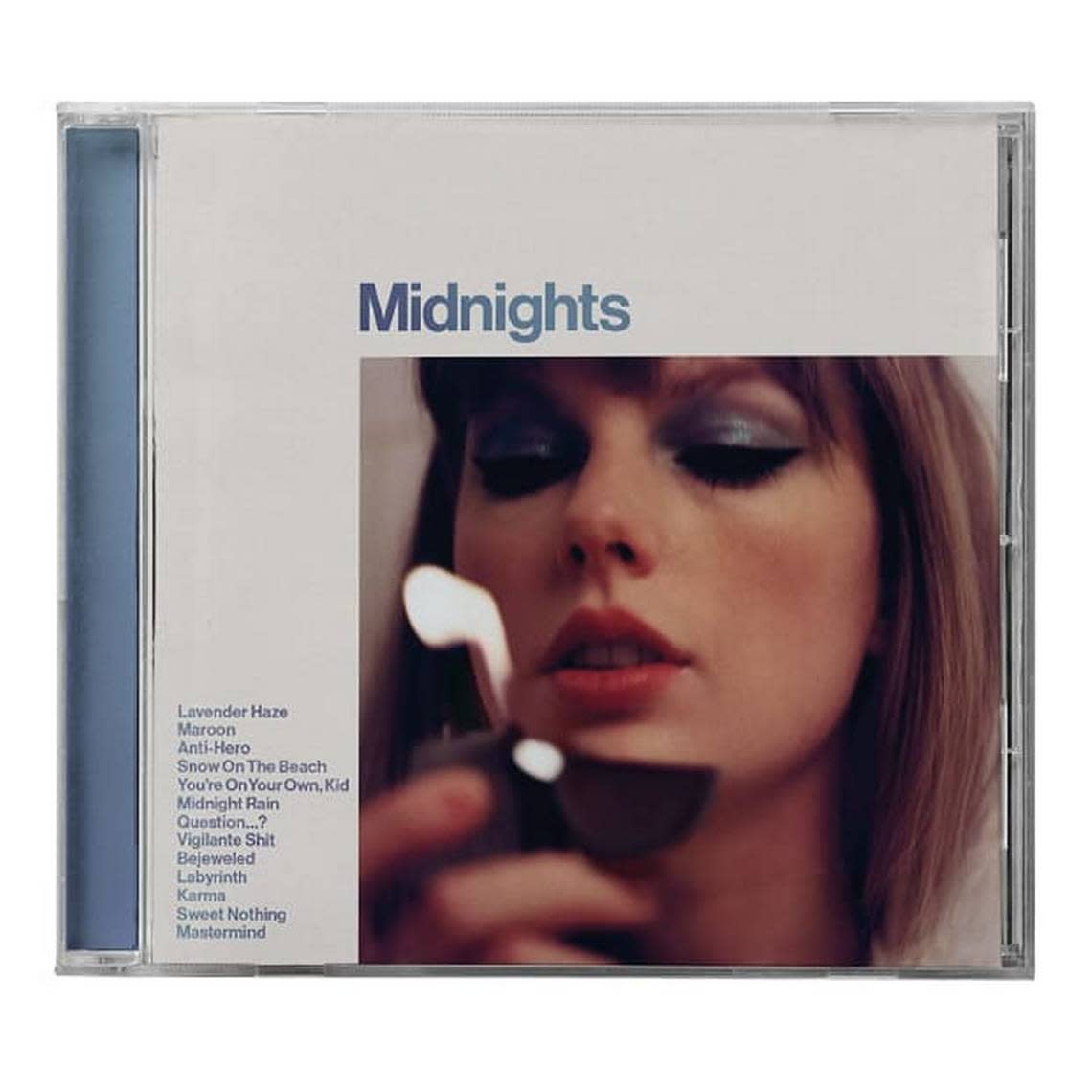Taylor Swift’s ‘Midnights’ are like our own. That’s why she’s an American treasure
By sheer financial success alone, Taylor Swift has secured for herself a page in American history, an artist, musician, businesswoman and singer-songwriter with few equals. Swift’s new album “Midnights,” released a few days ago, has already had the largest sales overall by week, for any album since Adele’s “25” debuted in 2015. It’s already sold more than one million copies.
Before the release, Swift’s net worth was estimated at $400 million which has undoubtedly gone up. Swift is an American success story twice over: a coming-of-age American success story who can make listeners feel their own heartbreak through her work.

In the album, which is the work of a true lyricist and musician, Swift takes us through a journey of midnights cemented in her mind. “Karma” is a celebration of watching your enemies get the future they deserve. “Anti-hero” is an impressive song describing — and making peace with — her own insecurities, vices, and self-loathing. “It’s me, hi! I’m the problem, it’s me,” she croons.
This isn’t the first Swift album like this — it’s part “1989,” part “Lover,” and part “Reputation” — but even a casual listener could tell she’s matured, her vocabulary has grown, and her ability to tell an entire story or elicit a feeling remains unmatched. No wonder she’s won 11 Grammys, three for Album of the Year.
Swift didn’t start out worth $400 million, of course. She started singing and playing the guitar as a kid. Her first big hit, “Tim McGraw,” was written in 2006. Then, her sound was undeniably Nashville pop country.
Over the years, her style moved firmly into pop. Many of her lyrics are sad enough to make you cry or profound enough to elicit strong nostalgia, but now they have an unmistakable thumping pop sound with a catchy melody. Beautiful songs, even better business acumen.

Swift’s life sounds lovely, but she’s experienced ups and downs like everyone else. Like many singer-songwriters, Swift has taken to writing about her own life, particularly the men she’s loved or who broke her heart, the friends she’s had who crossed her boundaries, or the experiences that have brought joy or pain. Male musicians write about relationships, too, but somehow, Swift gets criticized for it. (In her brilliant song “The Man,” she describes this irony.)
Despite her obvious success, Swift has faced undeniable sexism in the music industry: Rapper Kanye West just put a face to it when he interrupted her award acceptance speech at the Video Music Awards in 2009. Swift also won a sexual assault case against Colorado-based DJ David Mueller, who groped her at an event; her reward was a symbolic $1.
But her story is an American success story: ever onward, ever upward.
Swift came of age writing music for Americans about America — save for the references to British boyfriend Joe Alwyn, who prompted her love of London. As a star, she’s struggled with public validation, rumors, negative body image — everything that goes with living in the public eye.
Swift is not politically conservative: she’s been public about supporting Democrats, abortion rights and LGBT advocacy. But she’s certainly benefited from the free market — from the looks of it, the only competition is herself.
She’s an American success story because like America, she’s continued to evolve, to learn. From her decision to finally speak up about her political beliefs — a departure from the persona of “nice country singer” who smiles and waves at concerts — to her evolution in sound and as a lyricist, she always becomes a better version of herself.
Whether it’s one of her first classic hits, “Mean,” where she describes what it’s like to be bullied to her later lengthy ballad “All Too Well,” where Swift describes in gorgeous detail the agony of loving someone who breaks her heart and doesn’t own up to it, Swift’s songs showcase 15 years of growth. It isn’t enough for her to experience all the heartbreak or ecstasy just once; through every brilliant line she relives it and we remember when we felt the same thing.
When we hear her talk about the “ocean-blue eyes” of the man she loves, we think not of her boyfriend but of the person we know and love with blue eyes that mesmerize us. When we hear her analogy that loving someone intensely first feels like “driving a new Maserati down a dead-end street,” we too remember a similar exciting but toxic relationship.
Swift’s songs are intensely personal to her. But by the time they make it to our own Spotify playlists, they remind us of the people we have loved, the times our heart was broken, and when we most felt alive or successful.
Is that not the American experience, written delicately and put to music to dance to, laugh about and cry with?
